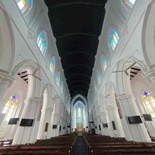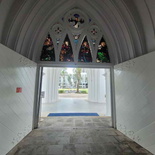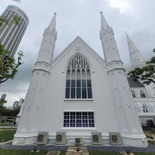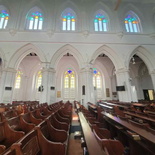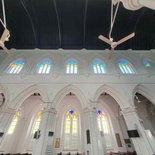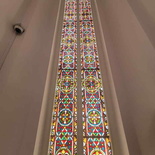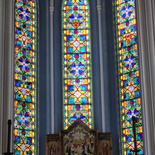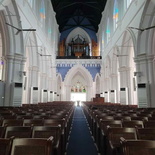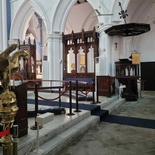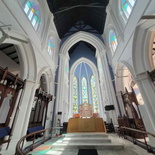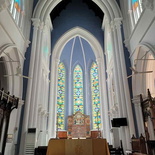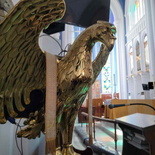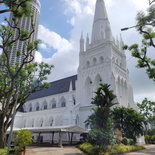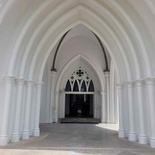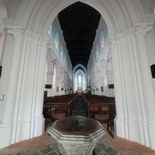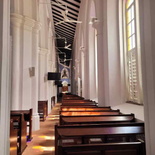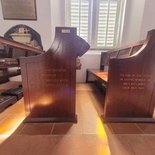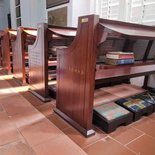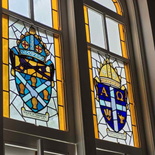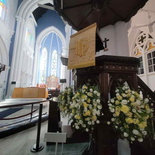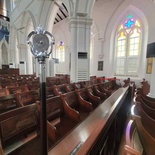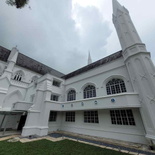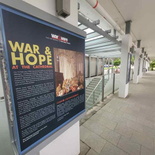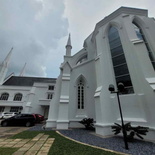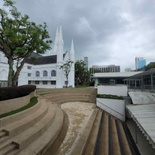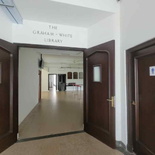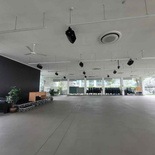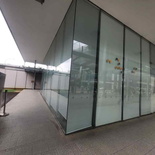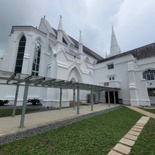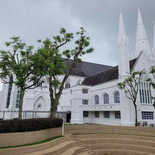Lets take an explore of St Andrews cathedral at the Singapore City hall area. It is tad a captivating journey through time and spirituality. In a nutshell and some history, the cathedral was established in 1836, it holds the honor of being the oldest Anglican church in Singapore and was designated a national monument in 1973.
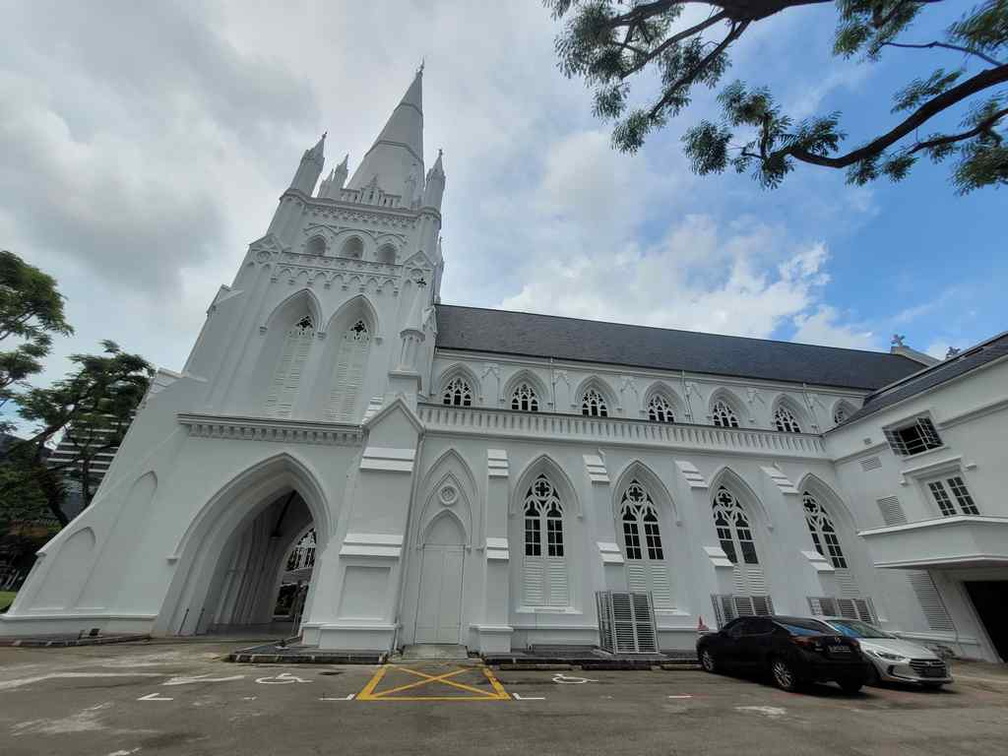
This cathedral stands as the primary church for the Anglican Diocese of Singapore. It offers you a glimpse into its rich history and architectural beauty.
St Andrews Cathedral building been rebuilt twice
This is not the original cathedral building. The cathedral’s history is woven with several fascinating tales. It traces it roots back to its inception in 1836 when the first church was built following Sir Stamford Raffles’ town plan of 1822.
Moreover, the cathedral is named after St. Andrew, the patron saint of Scotland. Also, the church holds a special connection with the Scottish community, whose contributions funded its early construction. However, the path to its current state has not been without challenges. The original neo-classical church wa designed by George Drumgoole Coleman. The original cathedral succumbed to two lightning strikes in 1855, leading to its eventual demolition due to extensive damage.
A Singapore Gothic Revival-style building
St Andrews Cathedral spots an architecture style of a present-day Gothic Revival-style. You can tell it is tad inspired by the Notre Dame Cathedral in paris with a similar gothic style.
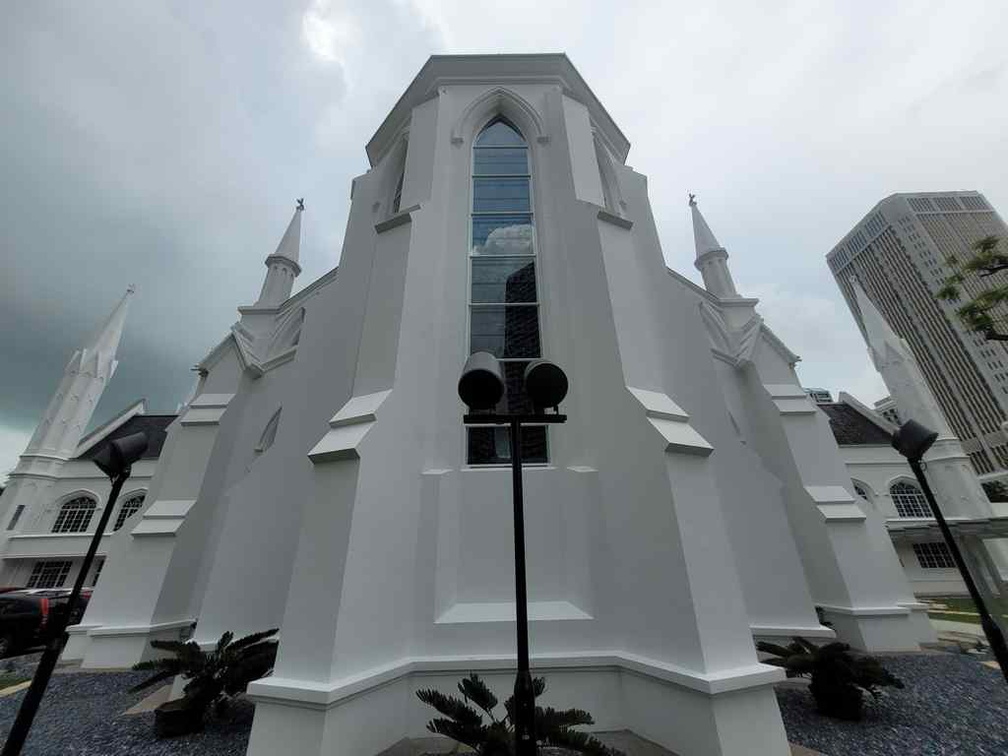
It was designed by Colonel Ronald MacPherson and constructed between 1856 and 1861 by Indian convict laborers. Also, it witnessed its consecration as a cathedral in 1870. Throughout its existence, the cathedral played a role in historical events. It served as an emergency hospital during the Japanese occupation of Singapore in World War II. More on that later.
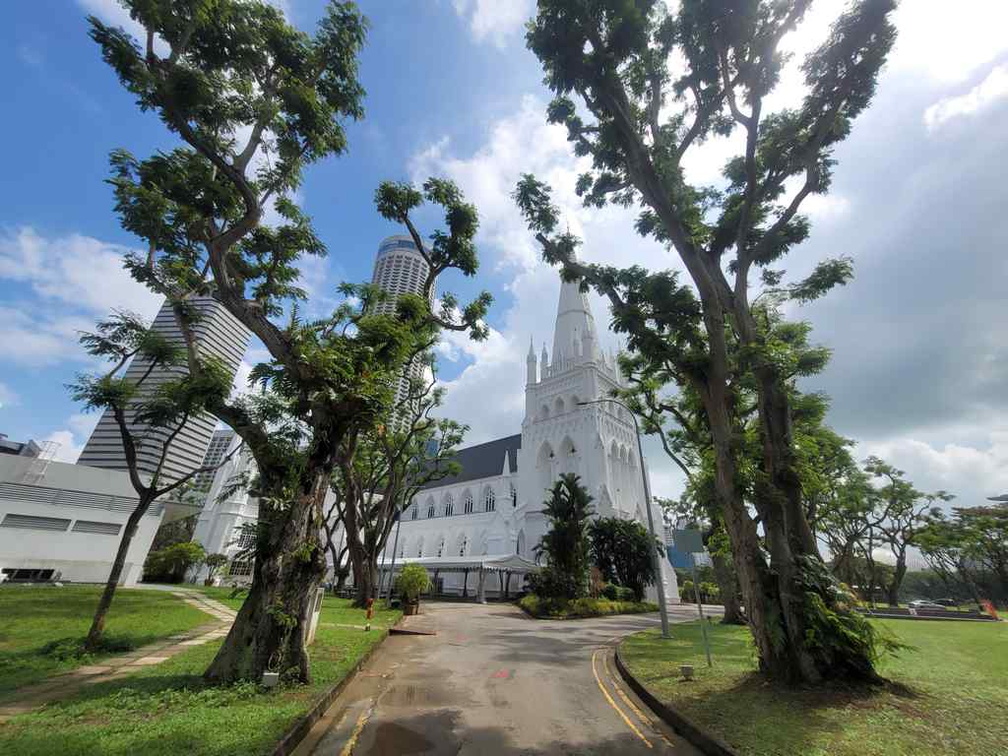
Back to the present times, the recently cathedral underwent a comprehensive restoration from January 2022 to December 2023 over the pandemic. S$6 million had been invested into it’s restoration, encompassing involvement of experts in various aspects. This ranged from plaster repairs and painting to structural checks and lightning protection installation.
Remarkably, the team uncovered eight hidden or painted-over architectural features, adding to the cathedral’s historical significance. The nave reopened on Christmas Eve 2023, attracting a substantial congregation.
The tranquil cathedral interior
Furthermore, stepping into the cathedral, the first thing that captures your attention is the vast and tall ceiling.
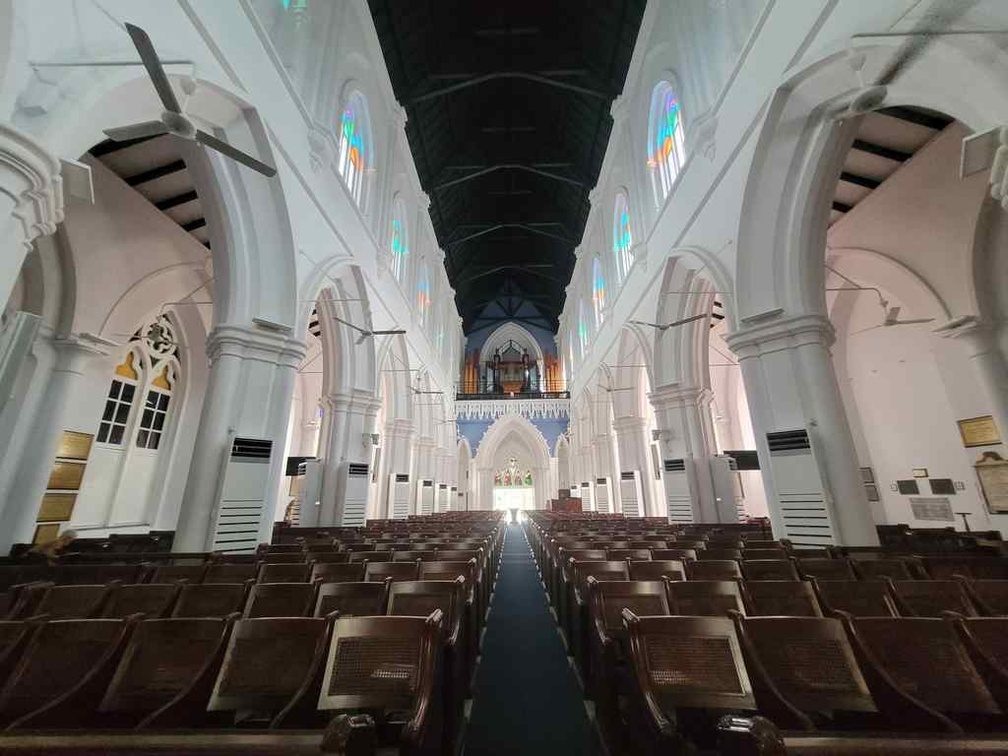
It has a black-painted wooden roof and clean white supporting pillars, creating an expansive central interior core.
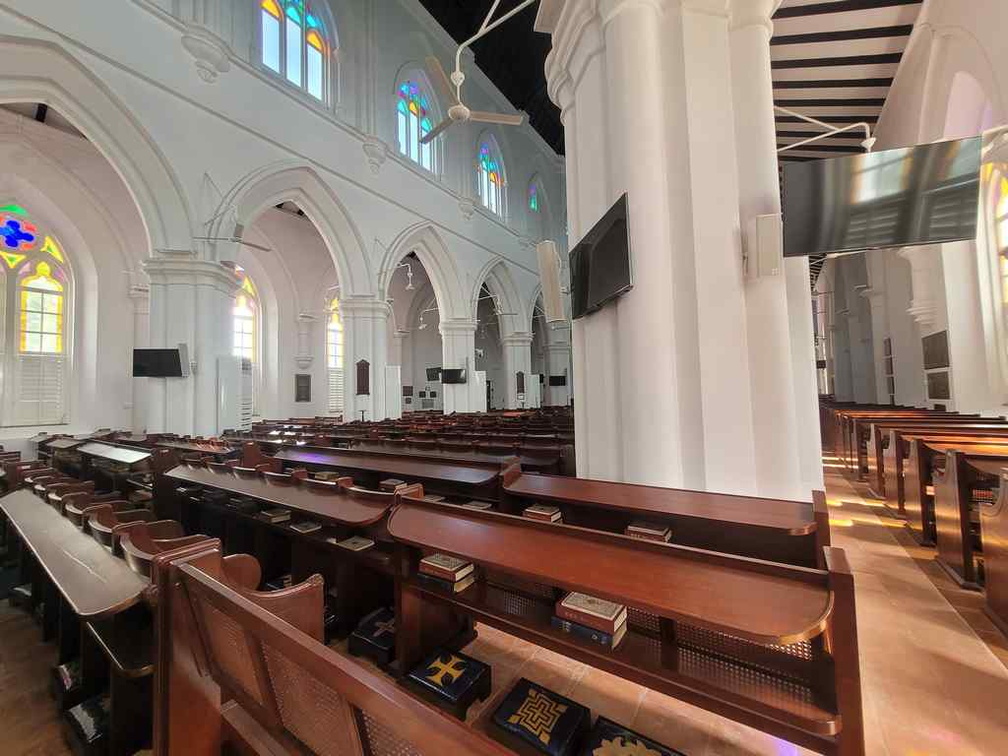
While not comparable to the grandeur of the Vatican City, the cathedral holds its own in terms of size, creating a sense of awe by local standards. It does not look as imposing as Ely Cathedral in the United Kingdom too, with a more busy elaborate exterior.
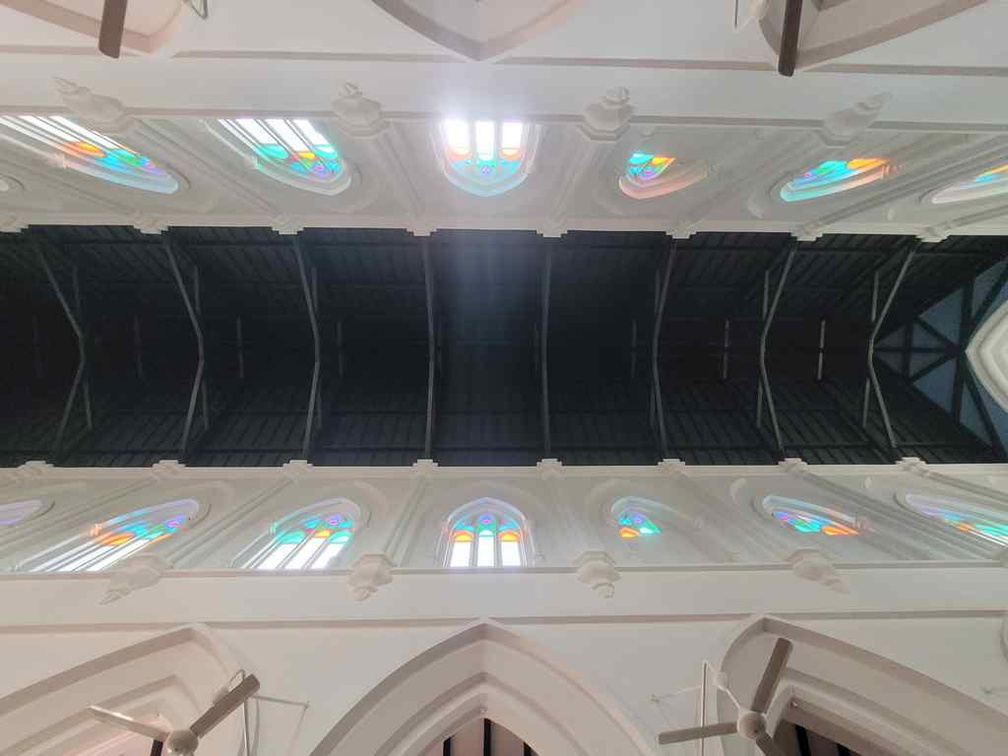
Stained glass windows
A feature piece inside the cathedral grounds are the stained glass windows. They were installed in 1889 and 1890 by Clayton and Bell in London. Also, the glass designs involves a mix of stained glass art and some depicting scenes from the life of Jesus Christ.
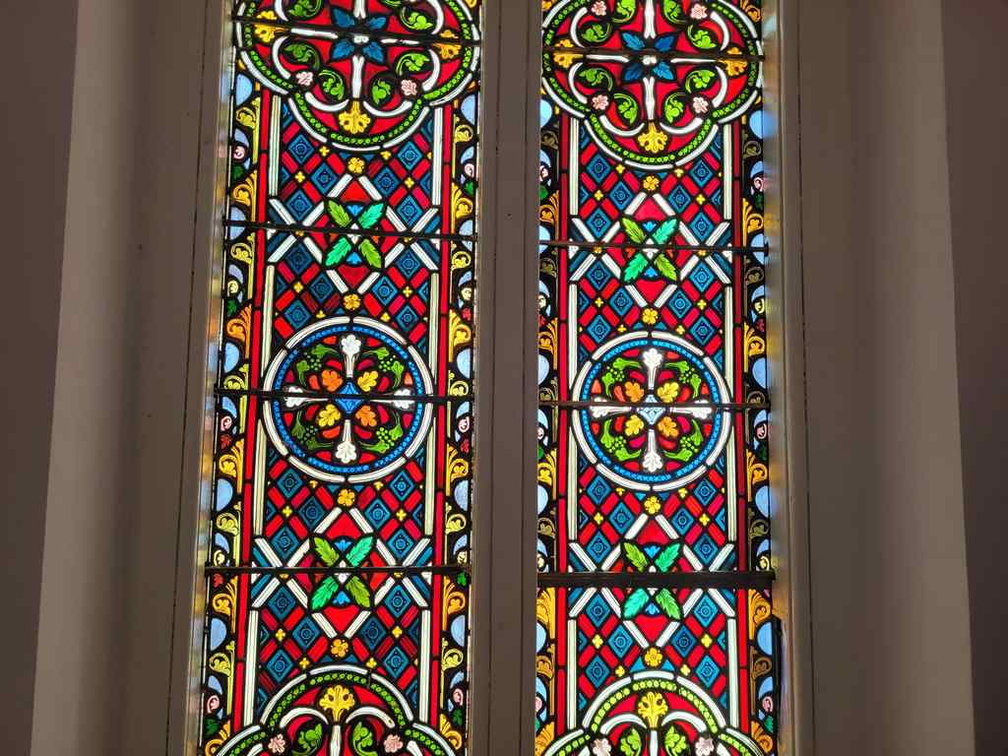
Moreover, the cathedral windows were all restored to their original sheen in the major renovation. You can see hints of coloured light as exterior sunlight from outside streams and illuminates the interior through the stained glass.
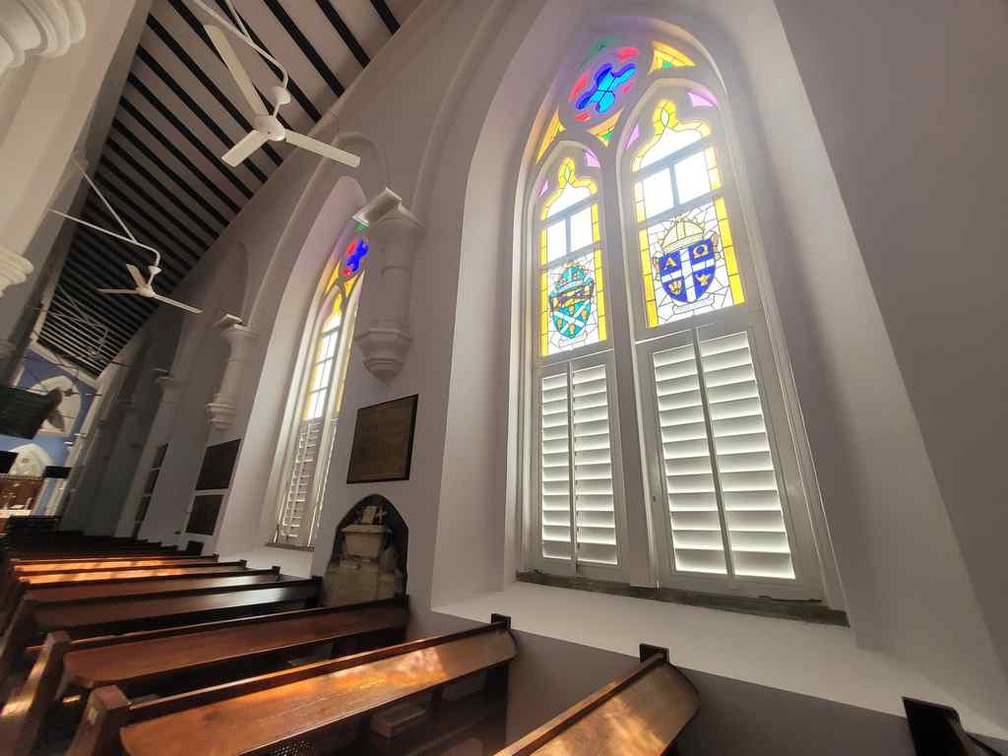
Also, the interior also features numerous memorial plaques, commemorating significant figures and events in Singapore’s history. It provides for an interesting read on those who stepped foot here before you.
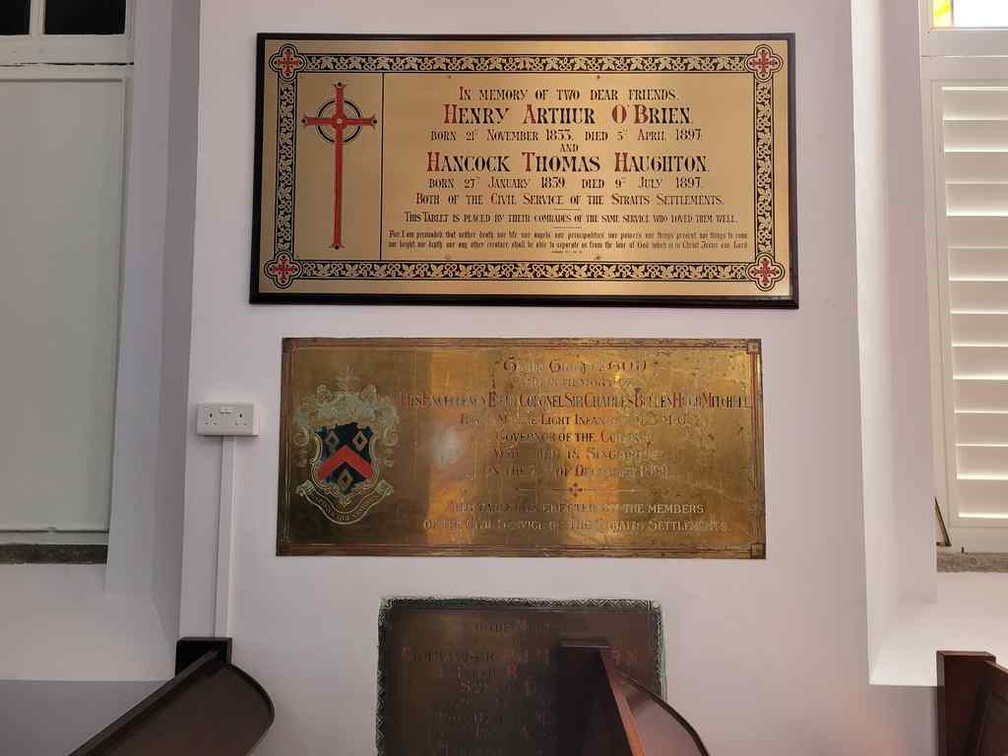
Examples includes the founders of modern Singapore, Sir Stamford Raffles, Sir Thomas Stamford Bingley Raffles as well as the first resident minister of the church, the Reverend Robert Burn, as well as victims of the 1915 Sepoy Mutiny.
Cathedral Front Altar
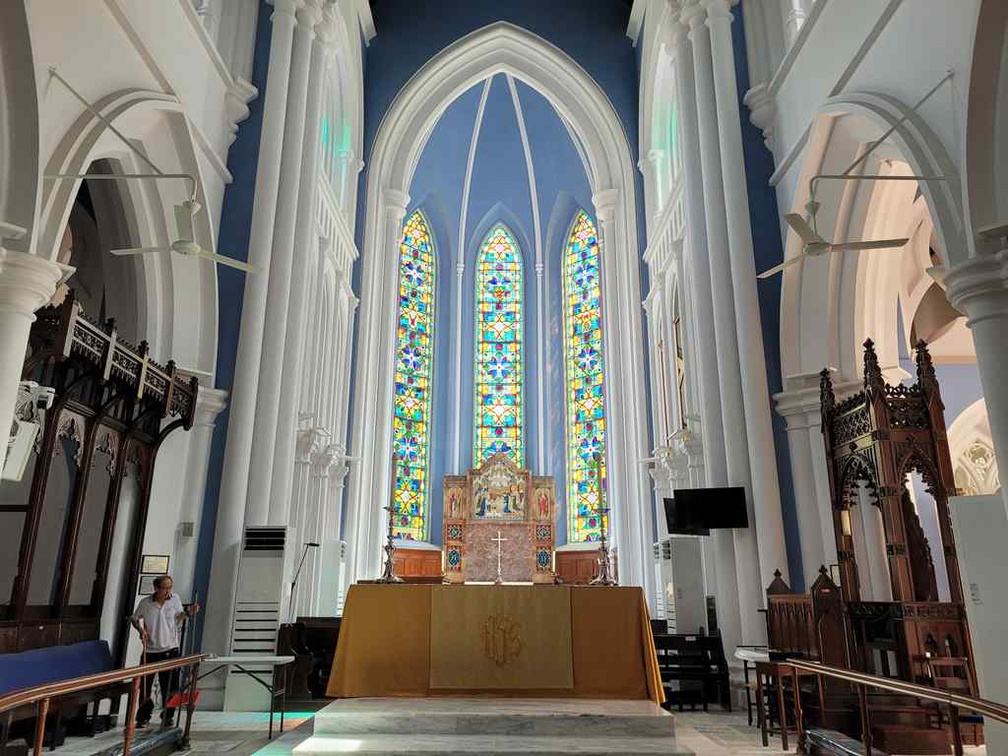
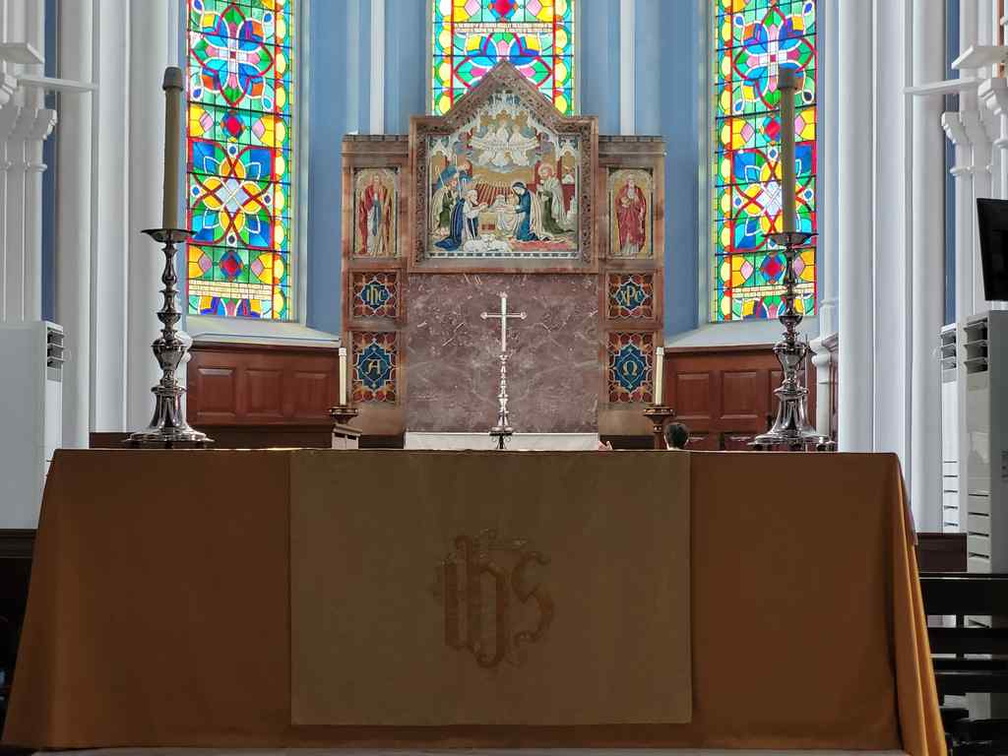
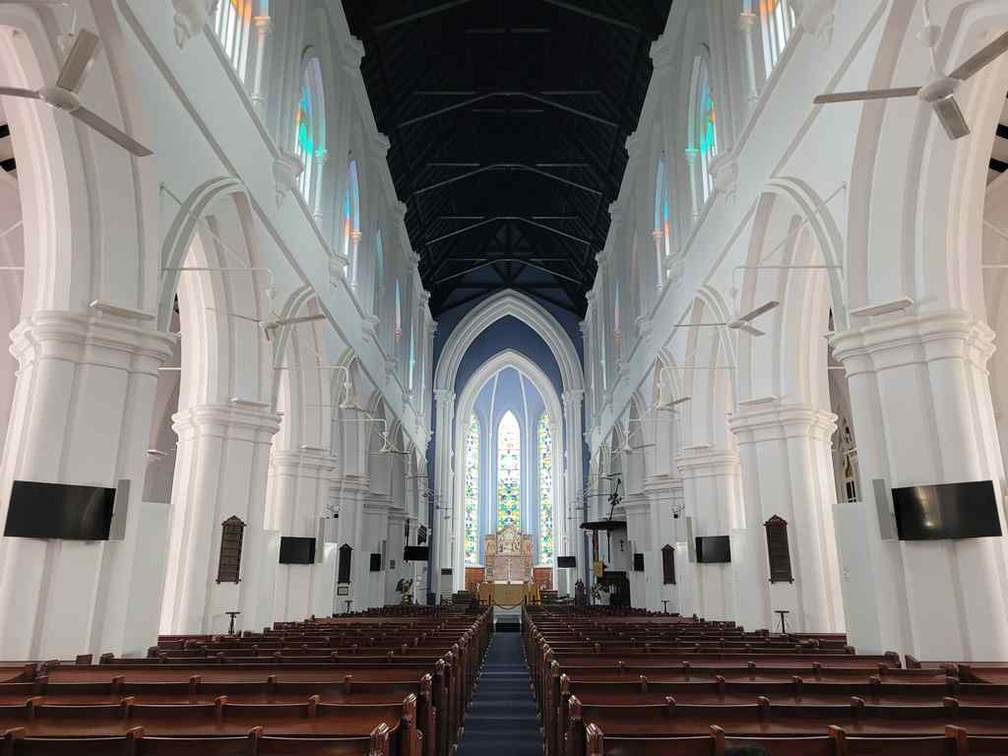
At the front altar, the St. Andrew’s Eagle lectern, church pulpit, and the restored organ above the front entrance door are noteworthy.
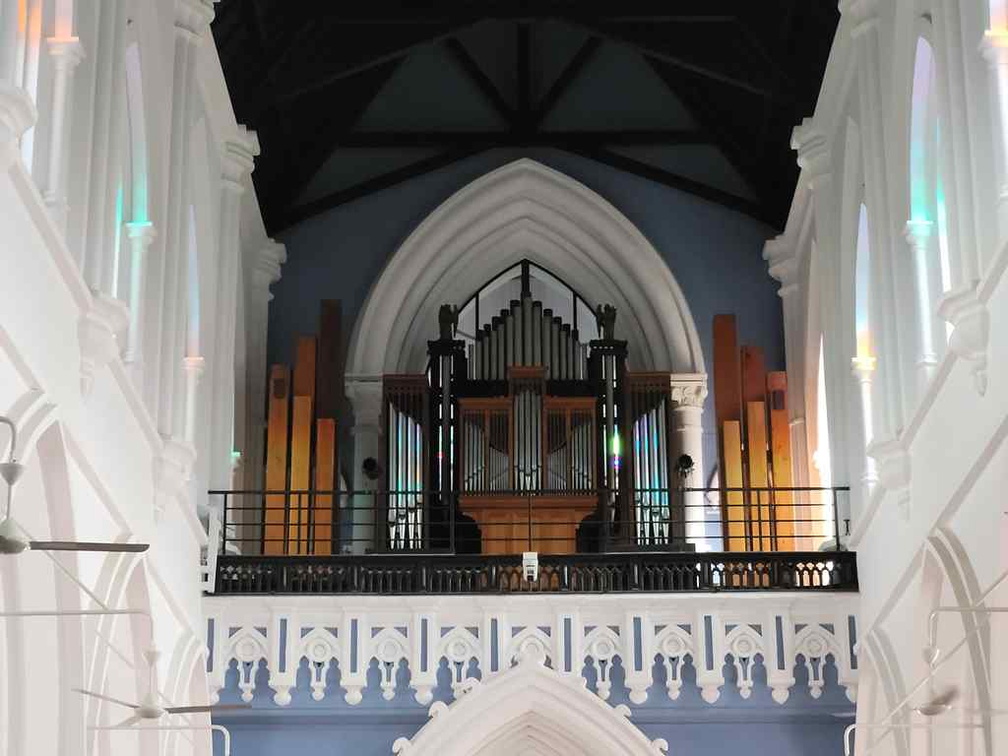
Also, the Revere Bell which sits at the cathedral tower was cast by Paul Revere Jr in 1843. It bears historical significance, donated by Mrs. Maria Revere Balestier. He is the wife of the first American consul to Singapore. Notably, the bell bears the inscription “Revere, Boston” and the Balestier family crest. Yes that Balestier which Balestier road is named after.
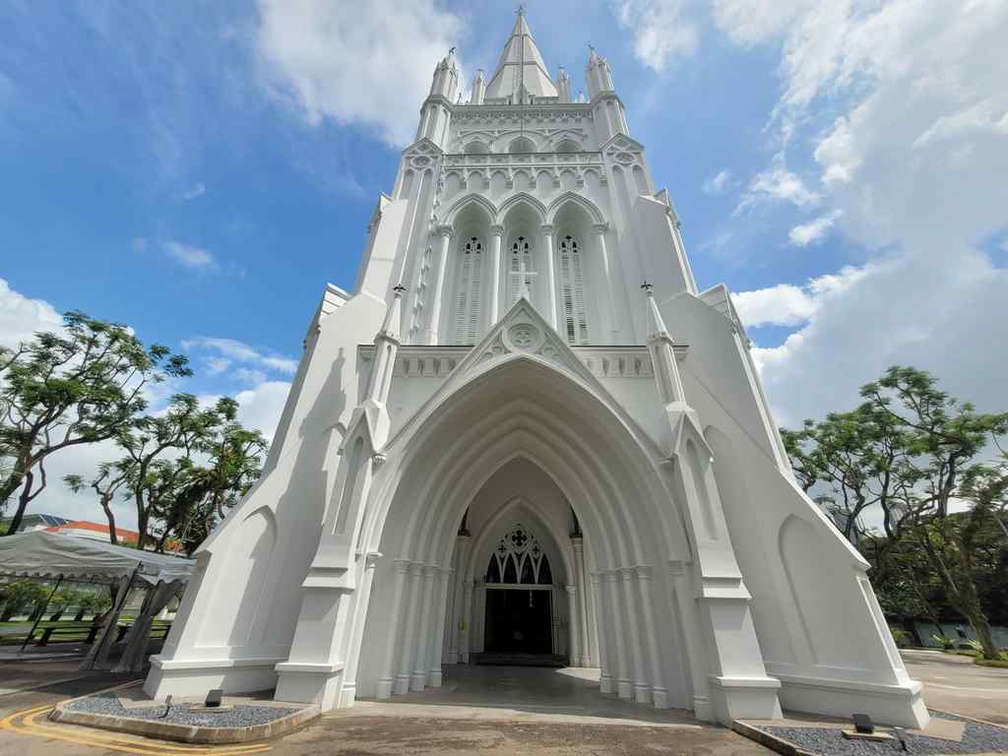
The St Andrews Cathedral Singapore baptismal font, carved from a single block of marble in 1856 greets you at the main entrance doors leading into the central altar way. Interestingly, the font has an octagonal shape. Each side of the octagon represents each of the eight beatitudes of Jesus Christ.
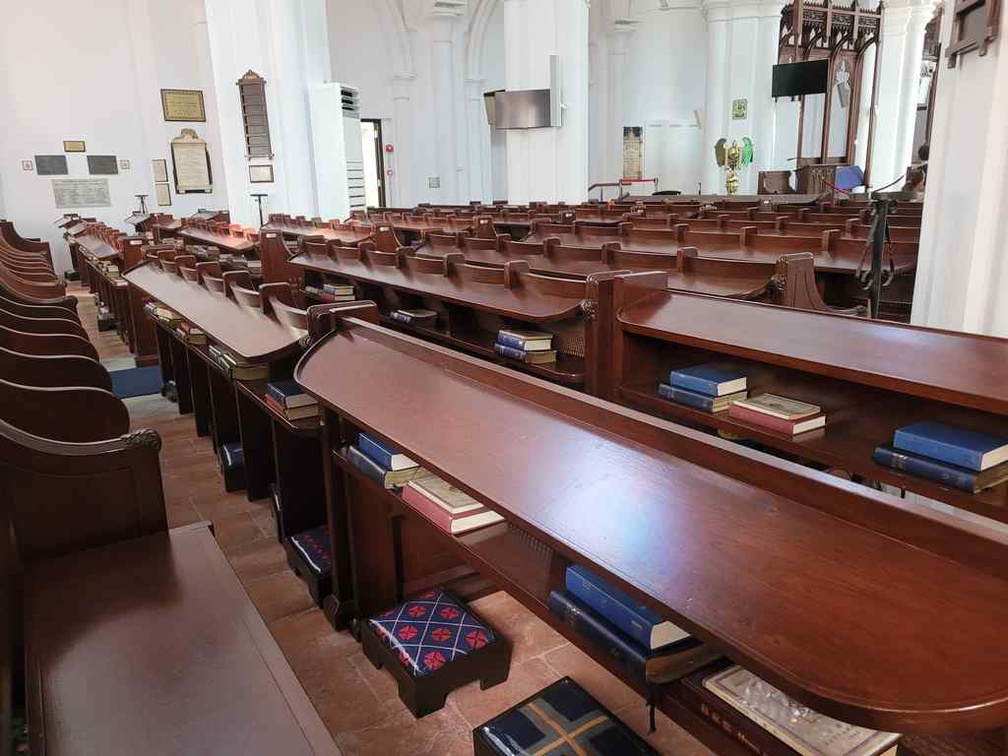
It also has the four symbols of the evangelists: a lion for Mark, an ox for Luke, an eagle for John, and a man for Matthew.
Additionally, the church pews are well-maintained, polished and equipped with cushioned feet and stored bibles. It does add to the historical and religious ambiance.
Walkabout in the cathedral grounds
The exterior of the cathedral is equally striking. It features a 68-meter-high spire topped with a cross and a weather vane shaped like a fish, symbolizing the early Christians.
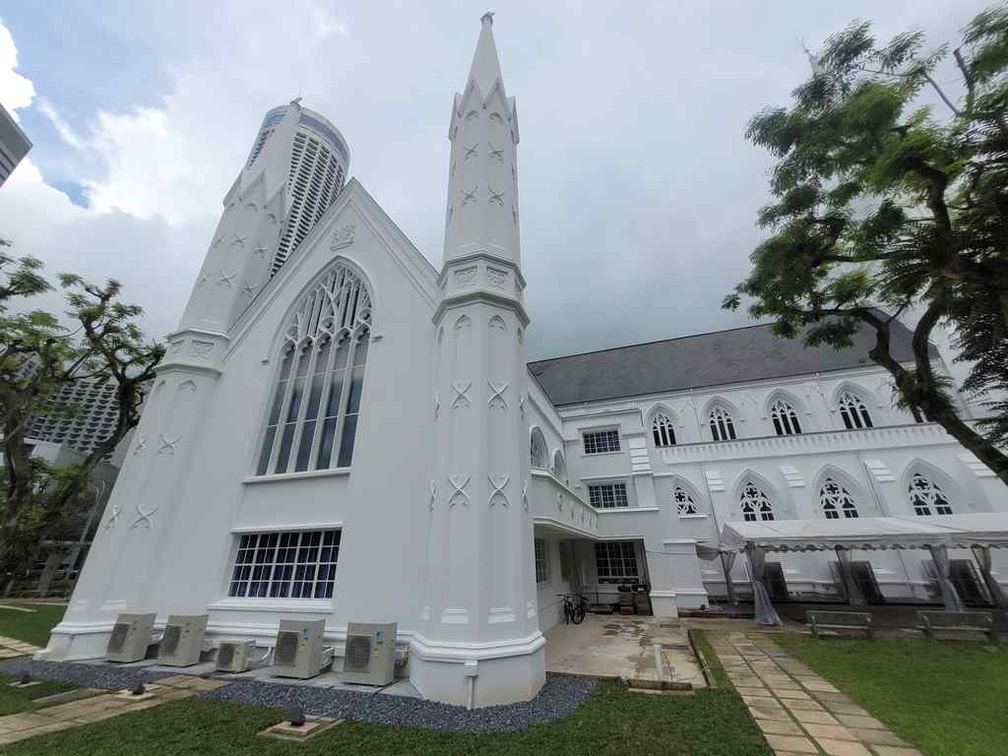
Exiting the cathedral, you can find rows of informative boards covering additional insights into the cathedral’s history.
Here you can read stories of the cathedral serving as a temporary hospital during the Japanese occupation and shed light on figures like Bishop John Bishop and Acting Dean Dr. Devasahayam.
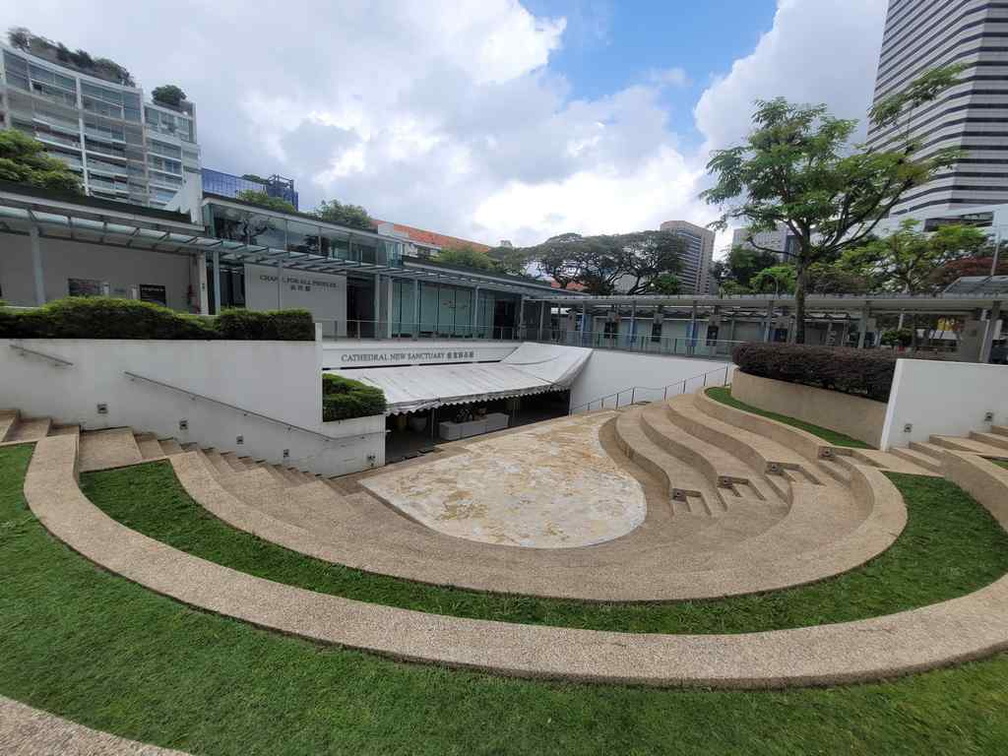
Surprisingly, the exterior compound includes an outdoor amphitheater event space which is not visible from outside. It is large enough to hold outdoor events and concerts easily for large groups.
It is connected to an indoor enclosed events space with a large screen located next to a visitor center and shop near the City Hall MRT underpass exit. You can enter the Cathedral through the main road gates or an inconspicuous side gate by the City Hall MRT underpass exit.
In conclusion, St. Andrew’s Cathedral is one of a unique Singapore Gothic Revival-style building offering a serene atmosphere. It cathedral invites the exploration into Singapore’s religious and historical tapestry. Crowds are especially light during weekday midday and during lunchtime. It is open daily except on holidays and is popular largely with tourist visitors. Notably, the church grounds are nestled in the buzzing Singapore City hall district, beside the Singapore National Gallery art galleries and museum which you could visit as a following point of interest. Definitely one to check out for all for it’s history and significance in Singapore.

